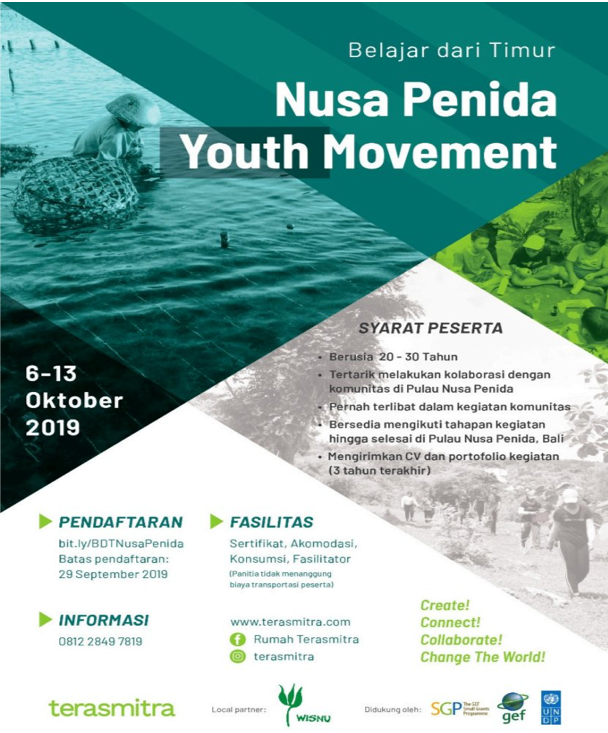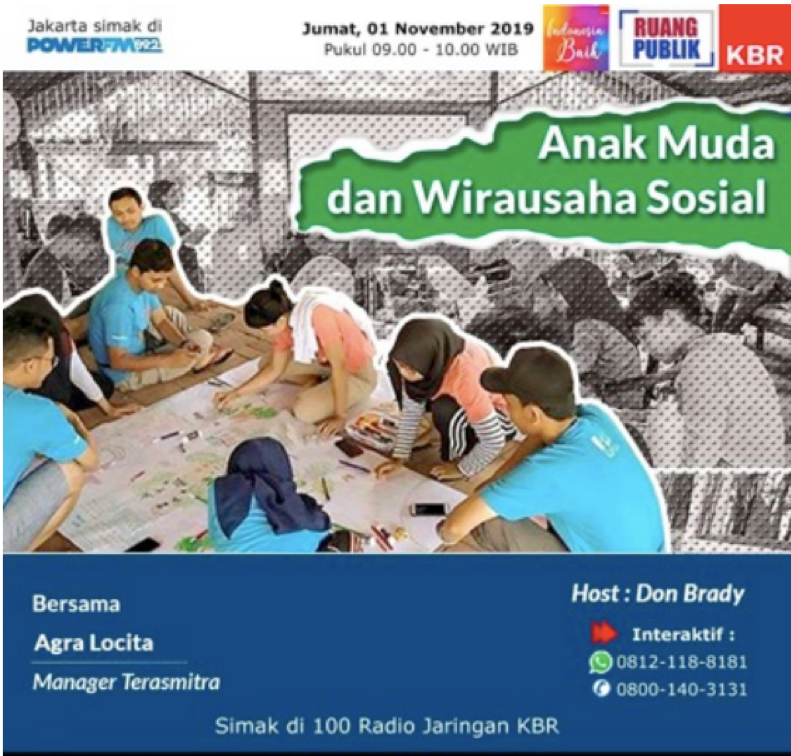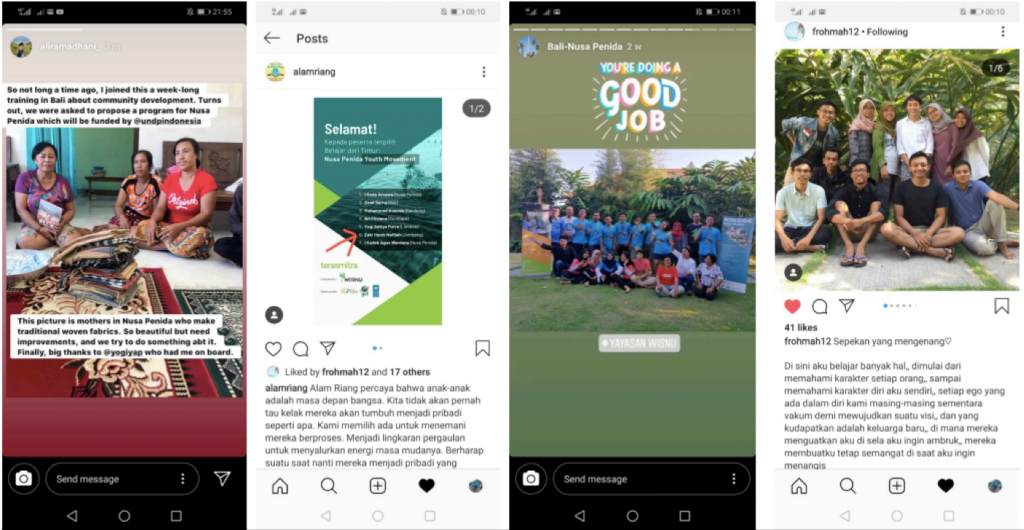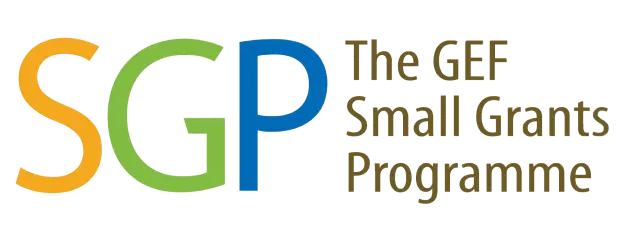Community Entrepreneurship Management Training in Gorontalo
Terasmitra
INS/SGP/OP6/TM/7/19
Community entrepreneurship management training in SP3 Gorontalo hamlet

Photo 1: Extracting information about the profile of each participant, either from their institution or from the groups or activities they carry out.
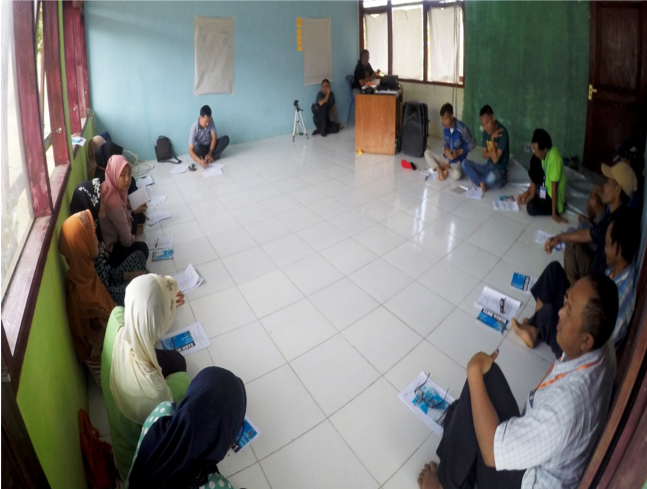
Photo 2: Delivery of Social Entrepreneur material delivered by Nartam Andrea Nusa.
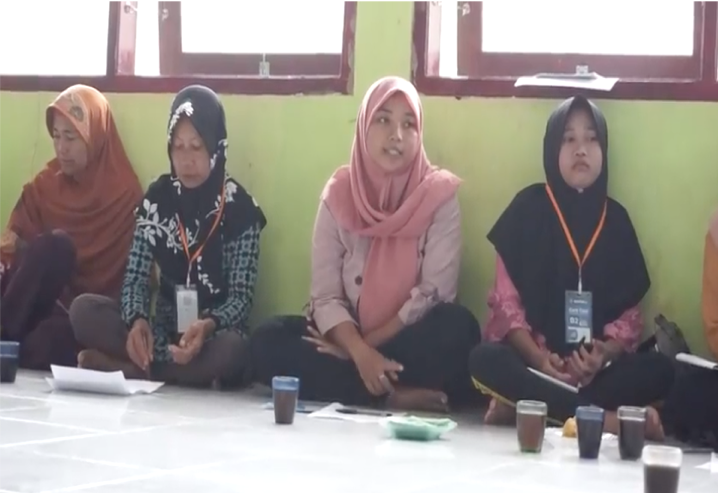

Photos 3 – 4: Visit to one of the community business locations that produce tofu. Learn about the community business management process and how to build and maintain a network.
Impact of Activities
- The community learns about the importance of management in building a business.
- Communities can share the information and knowledge they gain from the training process with their fostered partners.
- Information and stories about trainers' experiences regarding cooperatives and social entrepreneurship really provide motivation to the community. They understand that all activities carried out will be easier if done in groups and build cooperation.
- The community is able to develop, collect information and process local knowledge found in its work environment into management strategies and products.
- The community is able to develop products from the basic ingredients they produce such as corn, coconut and soybeans.
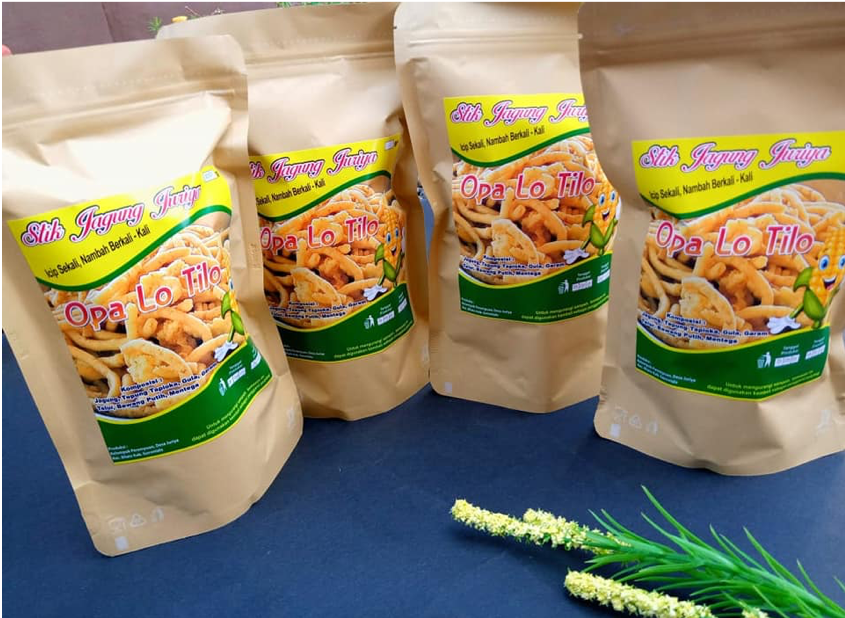
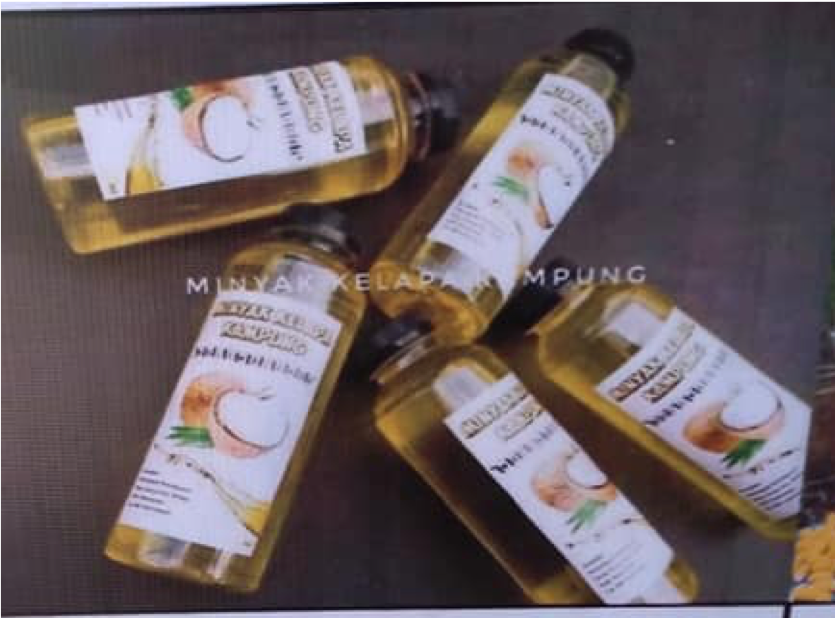
Photos 5 – 6: Results of product development from corn and coconut into local corn sticks and village coconut oil produced by the Juriya Village women's group.
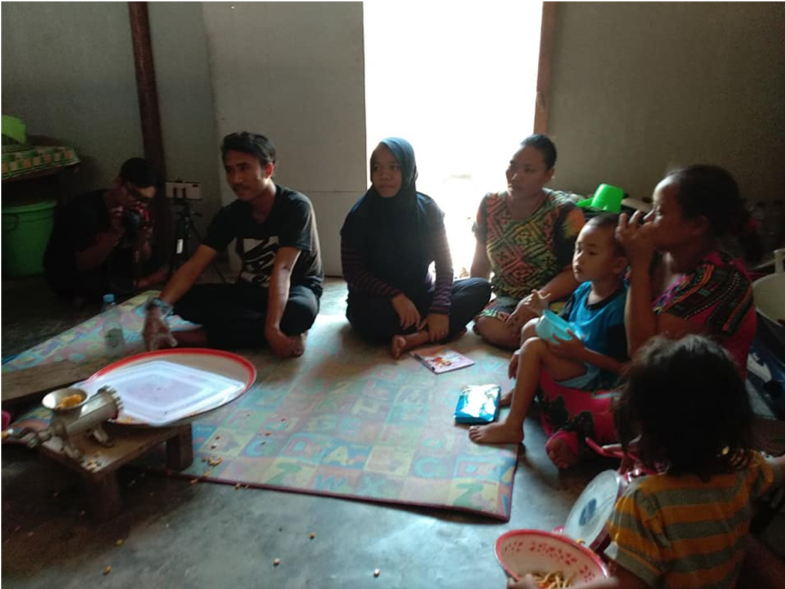
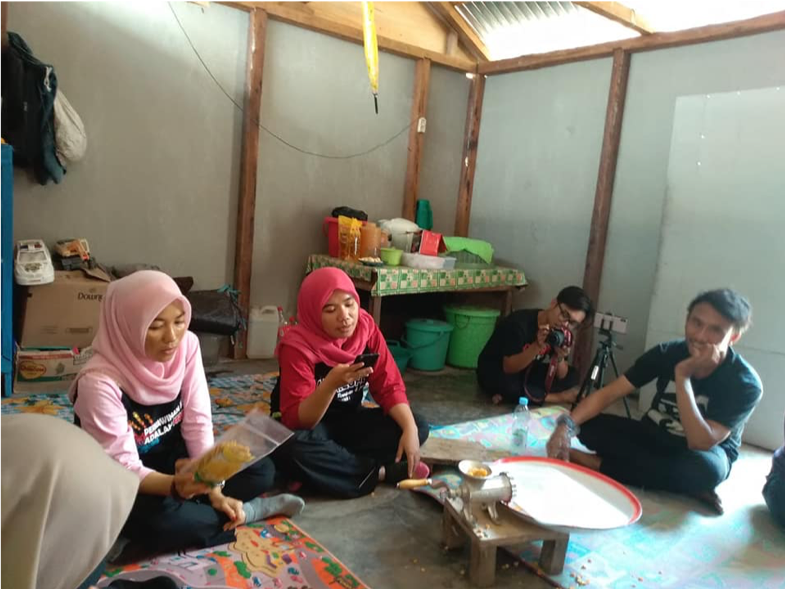
Photos 7 – 8: Product development assistance process for the Juriya Village women's group facilitated by Wire G.
Best Experience
Participating in several exhibitions held by the government or community as a means and media to promote community processed products. Providing experience to the community about product marketing methods and strategies.
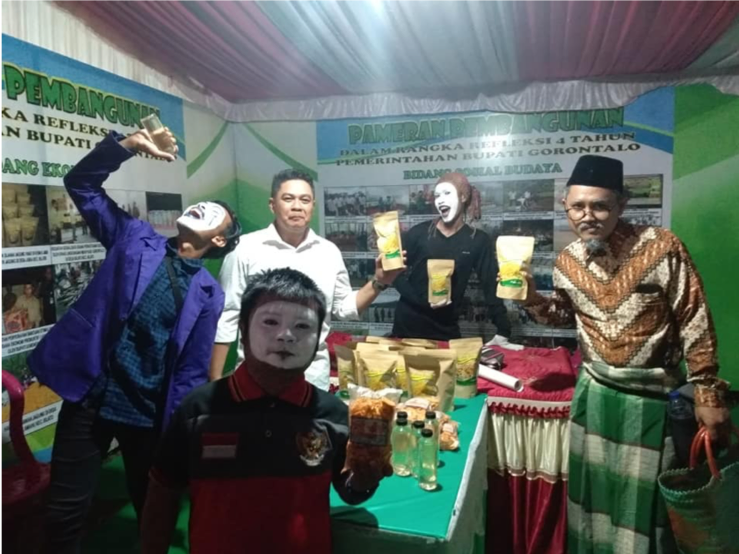
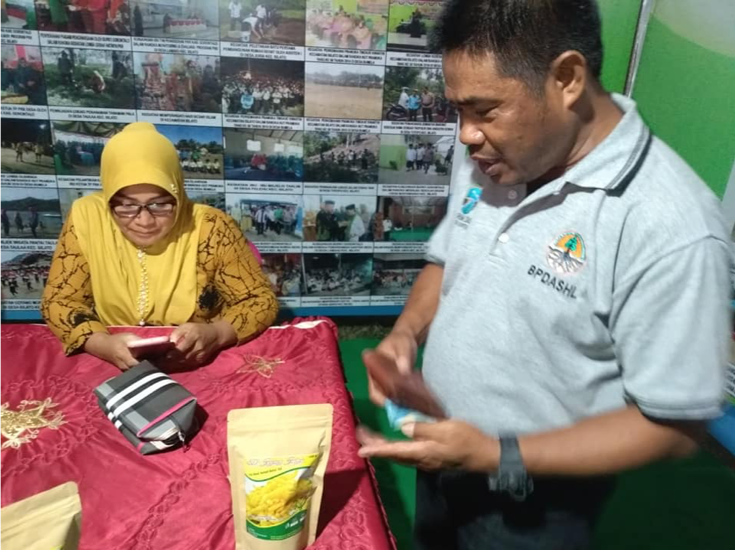
Program Sustainability
- The community regularly holds meetings to discuss organizational or business developments, or just to meet to increase organizational cohesiveness.
- The establishment of a WhatsApp discussion forum so that the community can still learn and receive mentoring from trainers in terms of entrepreneurial management.
- From the results of the community businesses created, namely corn sticks and VCO, it has been able to provide additional income for group members.
- The community actively participates in product exhibitions held by government or private institutions.
Knowledge Management and Development Training
Community Products in Wakatobi
Terasmitra
INS/SGP/OP6/TM/7/19
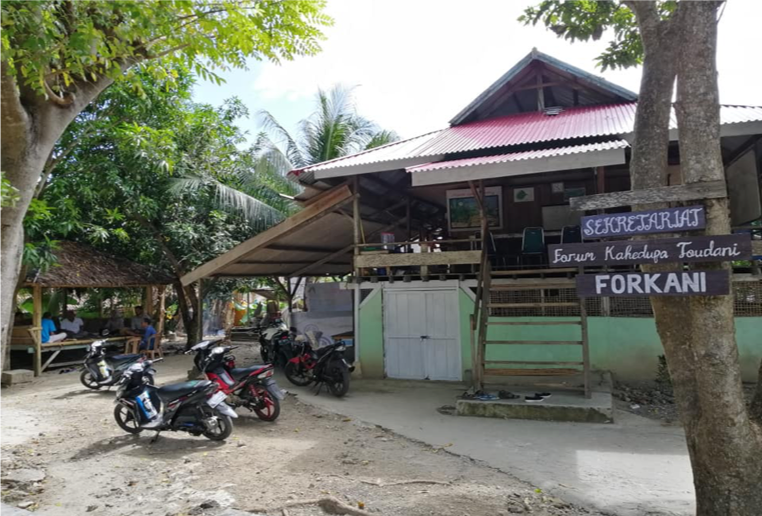
Photo 1: Training location at FORKANI, Kaledupa Island, Wakatobi.
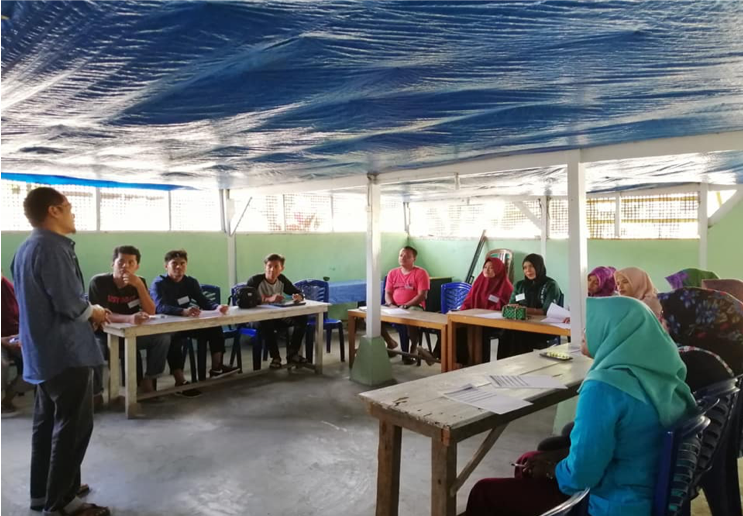
Photo 2: First day of introduction to knowledge management class.
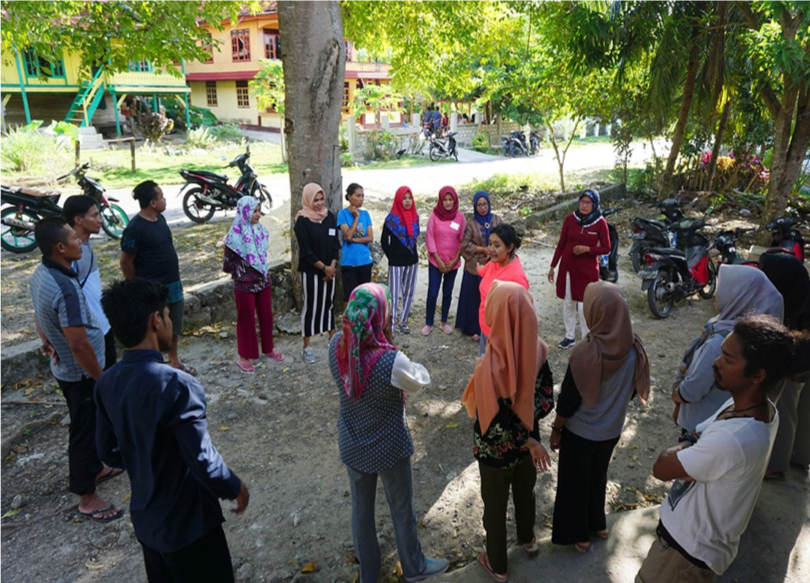
Photo 3: Knowledge management class activities, learning to understand information and pass it on to others by playing whisper games.
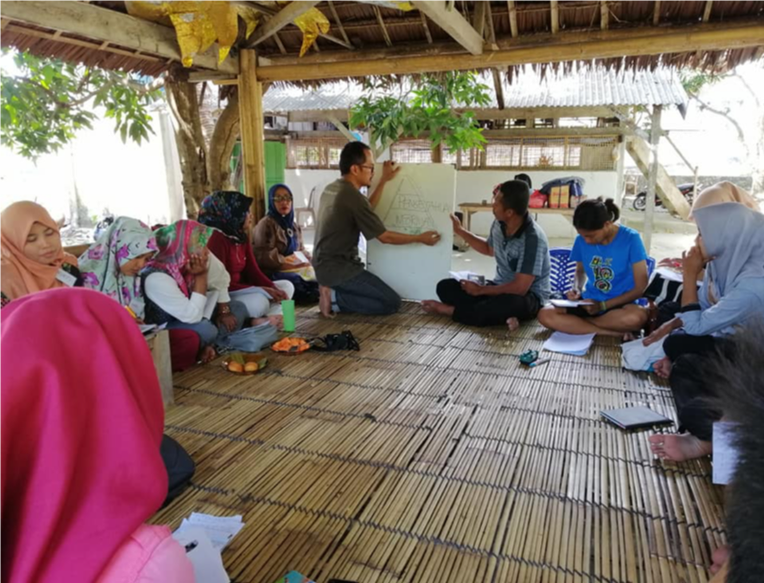
Photo 4: Second day of knowledge management class activities, participants made observations in the field and wrote down their experiences in written form, then the writing was read and responded to by other participants.
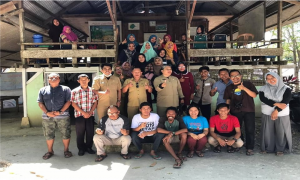
Photo 5: Photo with FORKANI, training participants, facilitators, representatives of BAPPEDA, Secretary of South Kaledupa District, and Head of Ambeua Kaledupa Subdistrict.
Impact of Activities
- The community is able to develop, collect information and process local knowledge found in its work environment into management strategies and products.
- The community becomes more confident in being able to tell stories in the forum.
- The community has the ability and skills to develop products, whether processed food products or service products.
- The community is able to put the knowledge they know into written form which can later be developed as learning material or other materials.
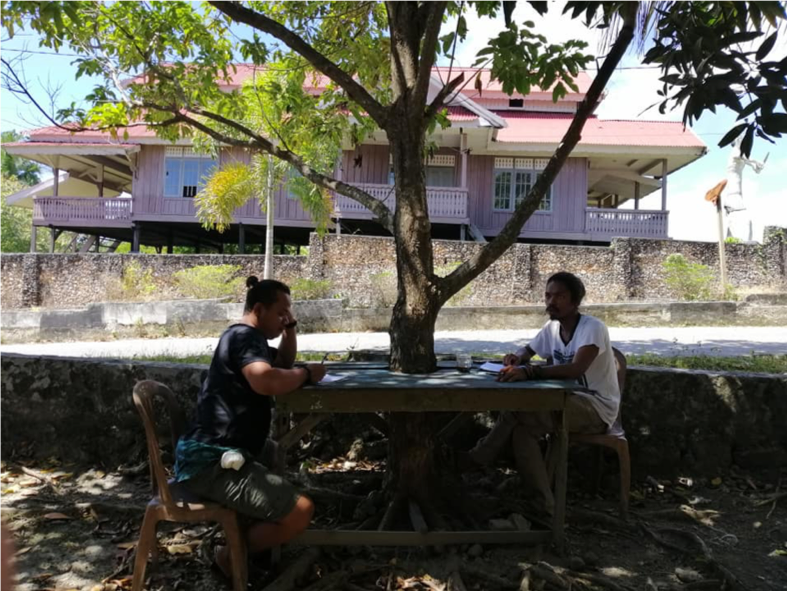
Photo 1: training participants are learning to write down the local knowledge they know from their area..
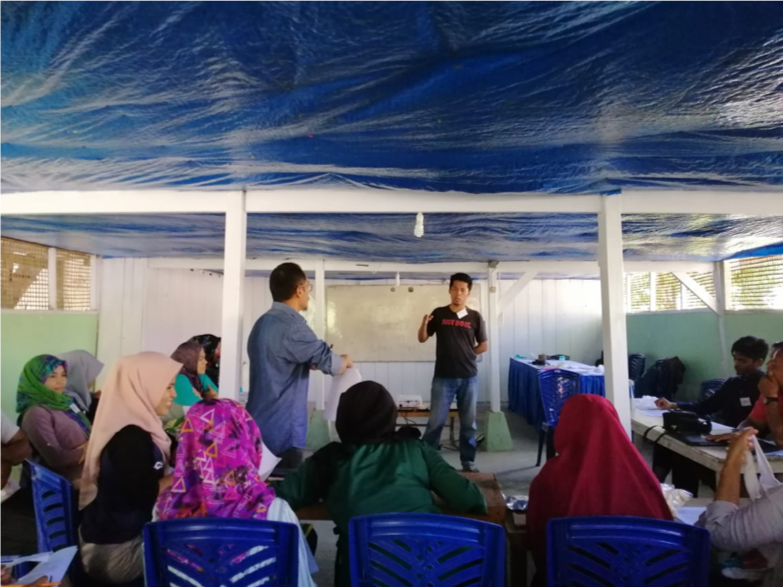
Photo 2: One of the training participants is learning to tell stories in the forum.
Program Sustainability
- The formation of a WhatsApp discussion forum so that the community can continue to learn and receive mentoring from trainers in terms of knowledge management and product development.
- Some of the training participants have put into practice the knowledge they have gained, some have written it in short stories and poetry, and others have put it into practice through social media posts such as Instagram or Facebook.
- Participants can use their knowledge to make promotional materials for their products which are posted to Instagram and Facebook.
Community Young Entrepreneur Management Training in Kupang
Terasmitra
INS/SGP/OP6/TM/7/19
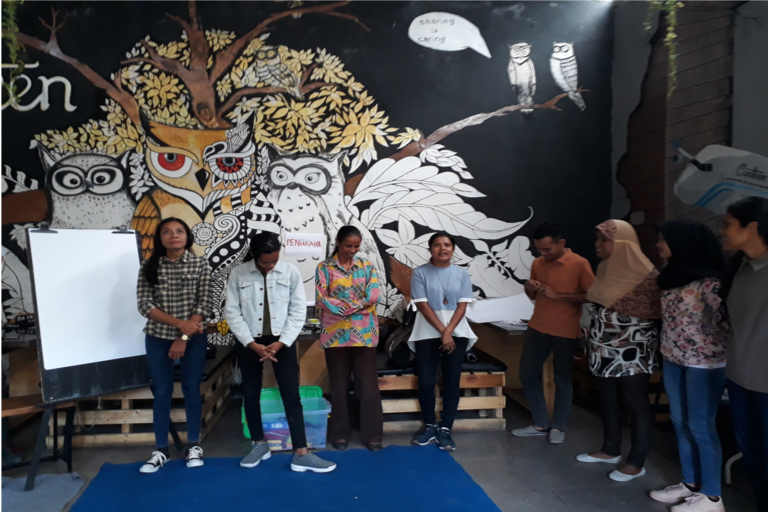
Photo 1: self-introduction of each training participant, and a brief explanation of their motivation for participating in the training.
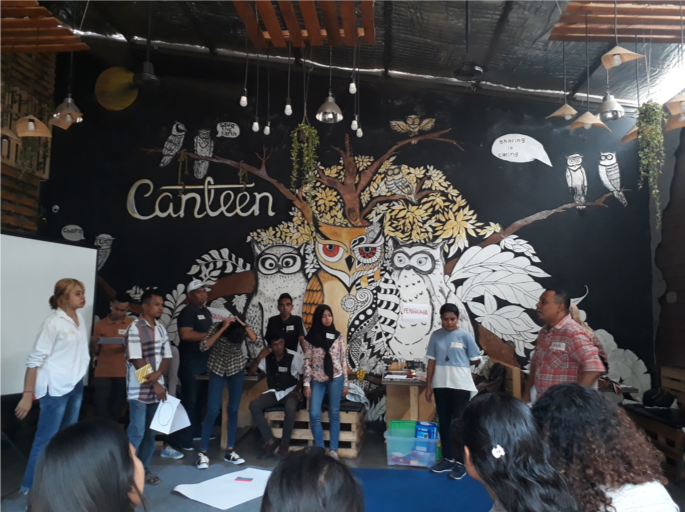
Photo 2: Kak Dany as the sedan facilitator delivers material on Potential Identification and USP - Unique Selling Point..
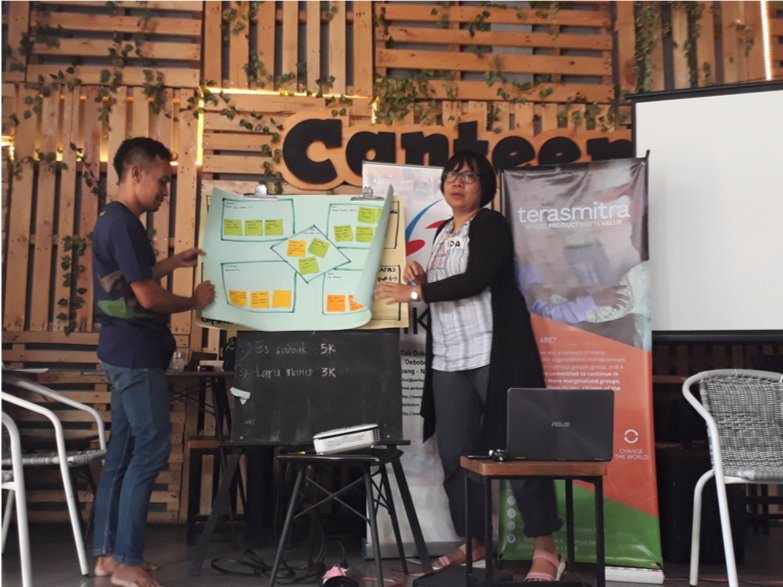
Photo 3: Ms. Ida Pardosi is giving material about SWOT Analysis..
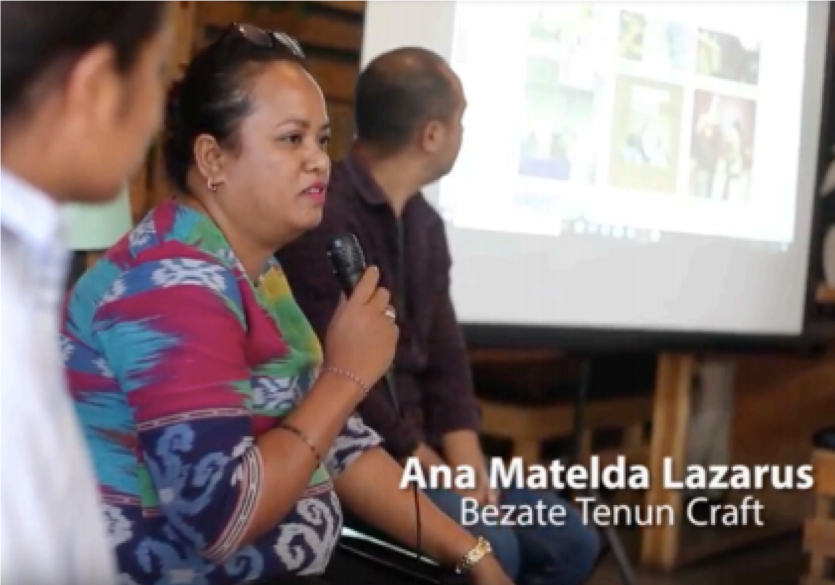
Photo 4: Kupang MudaPreneurs invites young Kupang entrepreneurs to share their experiences. The resource persons present were Rey Padji from startup LooBeta and Ana Matelda Lazarus from Bezate Tenun Craft.
Impact of Activities
- The community is able to develop, collect information and process local knowledge found in its work environment into management strategies and products.
- The community becomes able to better recognize the potential and problems that exist within the group or business.
- The community gets a new Business Model method that they can use as a guide for building a joint business.
- The community becomes able to create strategies and read opportunities in developing its business.
Media Publication
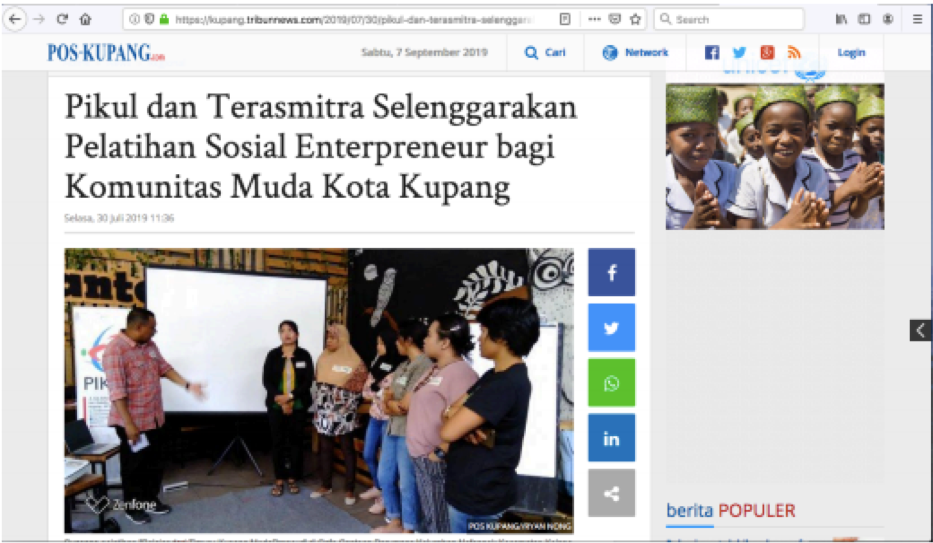
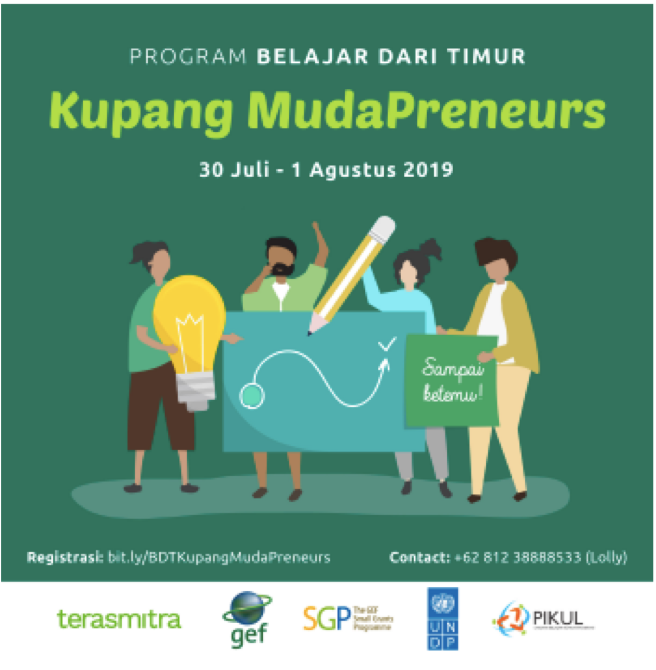
Learning Incubation From the East; Nusa Penida Youth Movement
Terasmitra
INS/SGP/OP6/TM/10/19
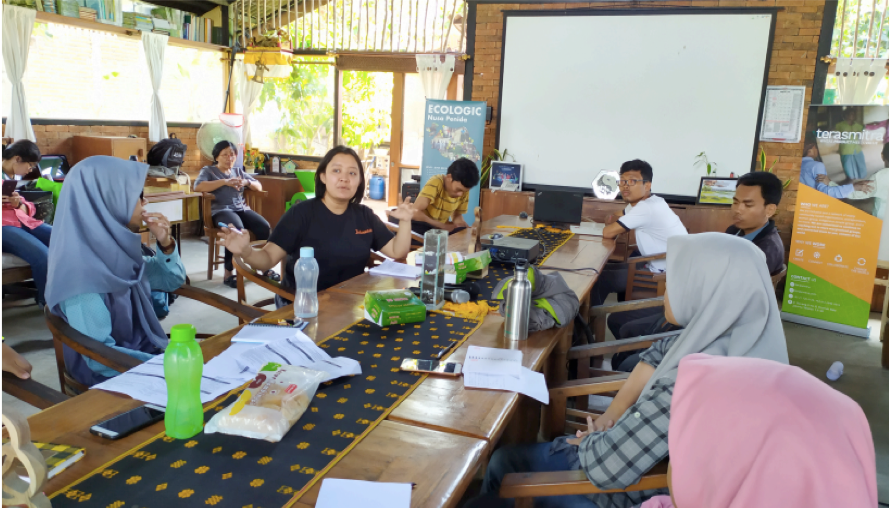
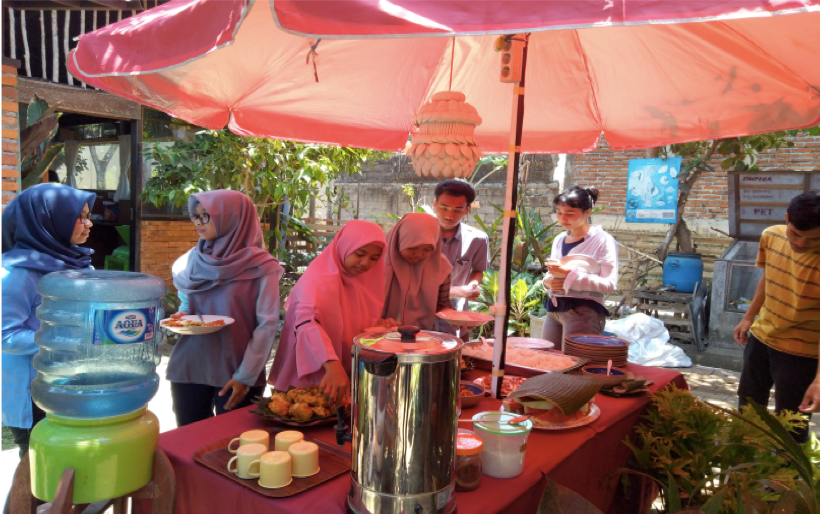
Photos 1 – 2: Opening activities by Terasmitra, Wisnu Foundation and local partners as well as the first day of incubation at PPLH Bali.
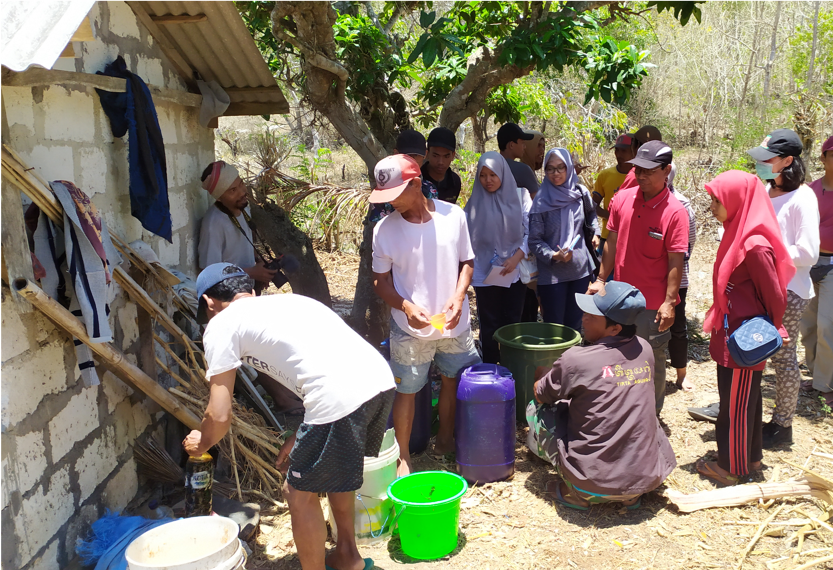
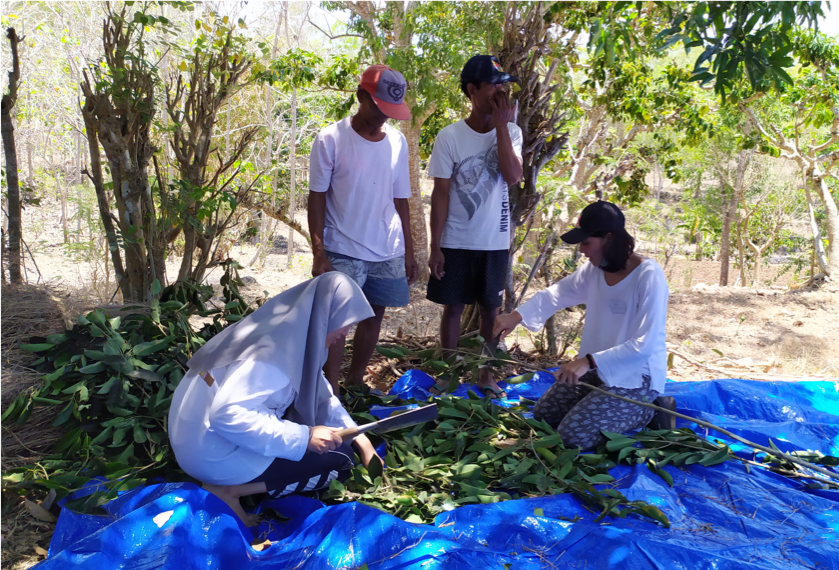
Photos 3 – 4: Participants learn and share about feed processing methods at a livestock site visit, Kutampi Village.
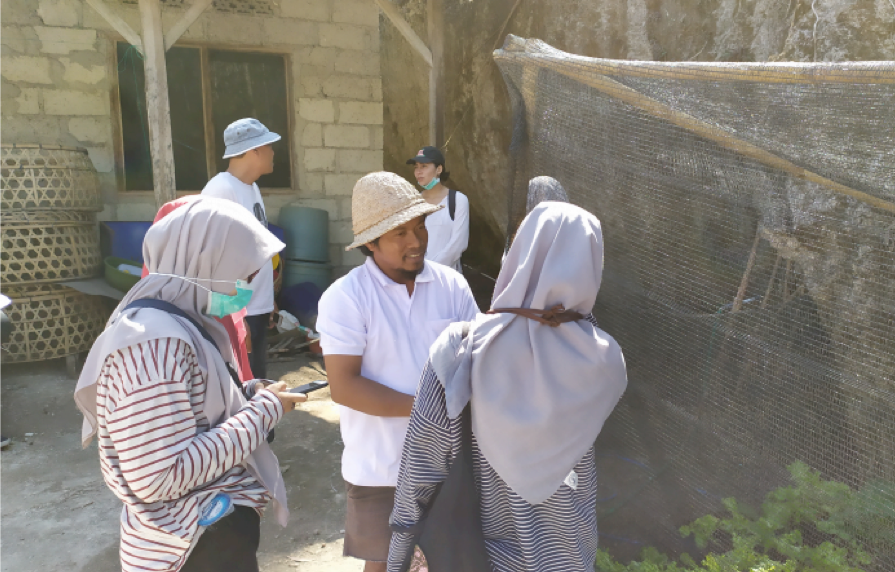
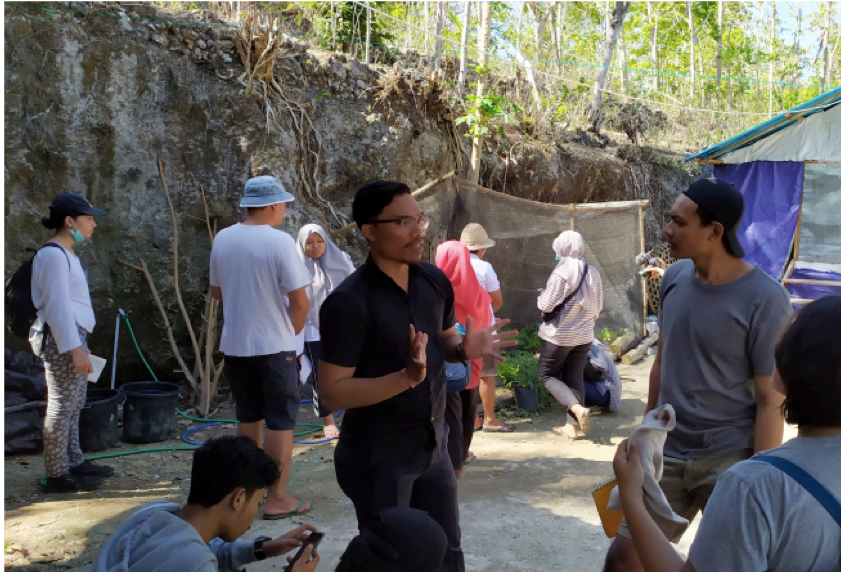
Photos 5 – 6: Interview with resource persons regarding organic vegetable growing methods at the Batukandik Village agricultural Site Visit.
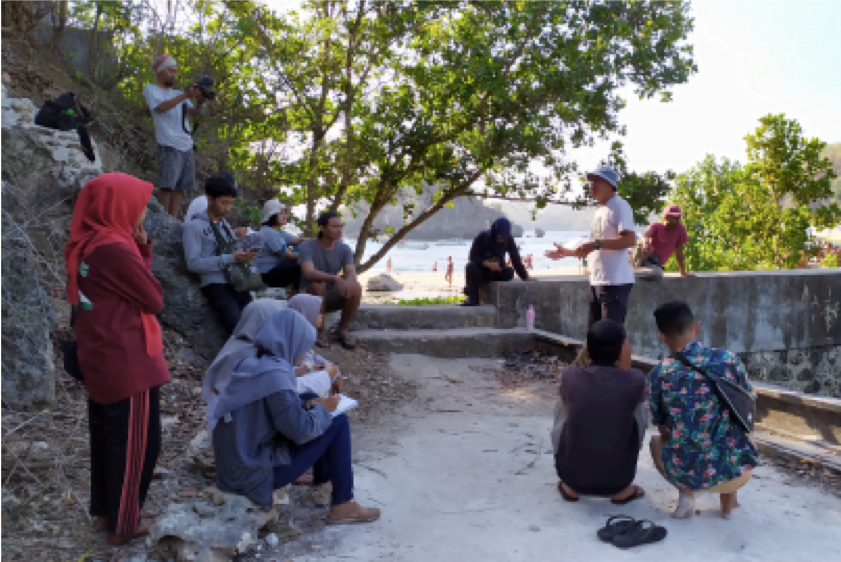
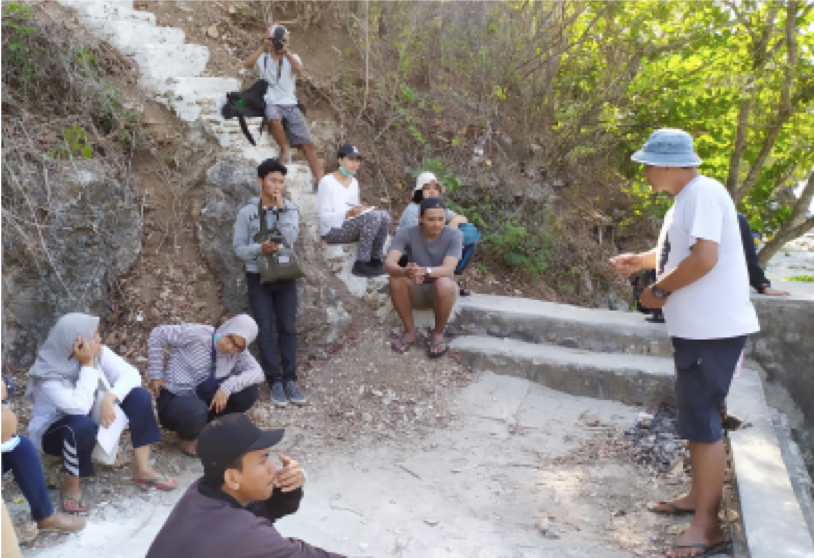
Photos 7 – 8: Field Facilitator (I GedeSugiarta) explains the water conditions in Nusa Penida and the role of the Penida spring.
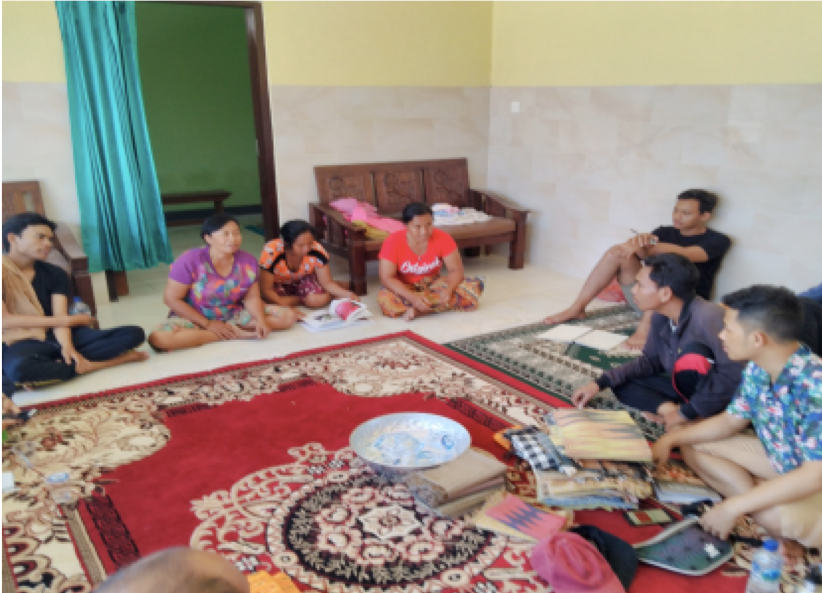
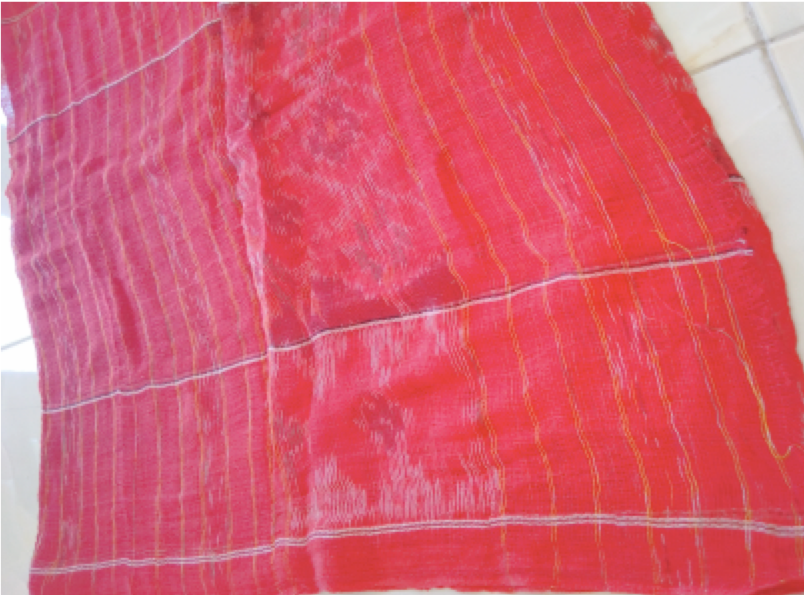
Photos 9 – 10: Participants asked about local weaving (problems and business opportunities) at the Tanglad Village Weaving Site visit.
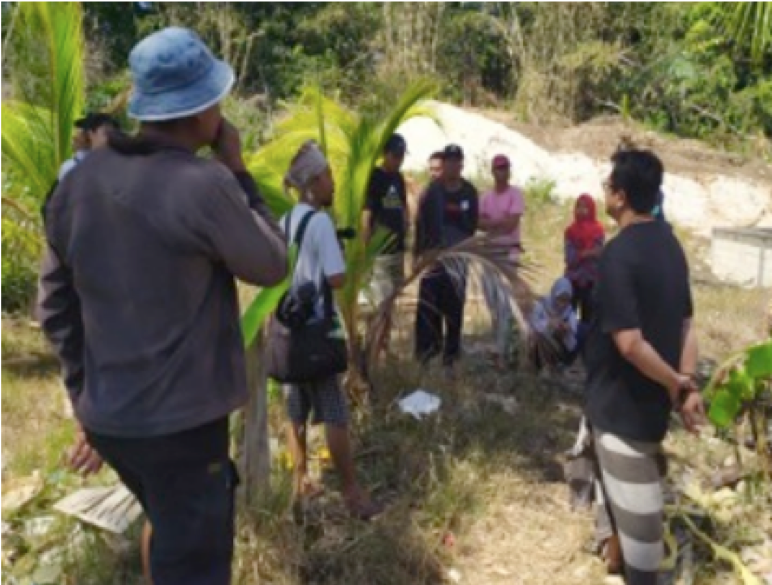
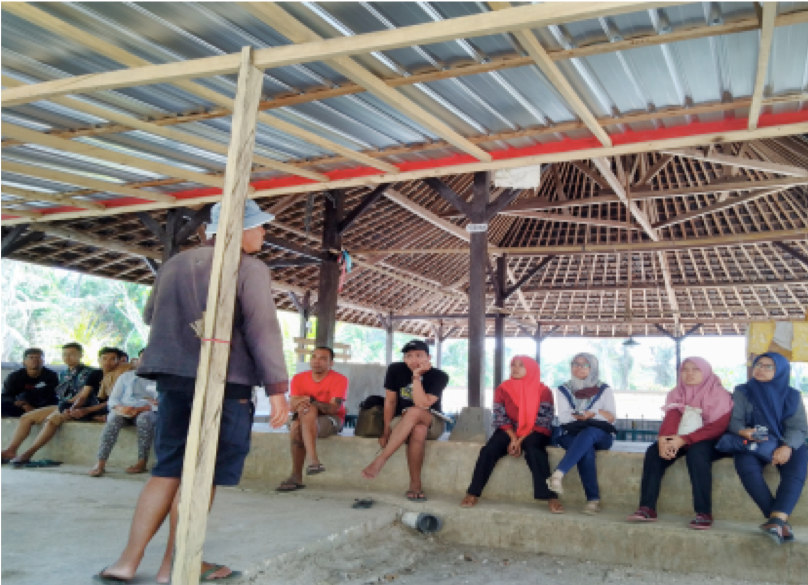
Photos 11 – 12: Visiting Saab Temple, learning about forest management procedures and benefits for the local residents of Nusa Penida.
Impact of Activities
- Participants learn about social enterprise based on local wisdom and friendly to the environment (sustainable development principles) which can have a positive impact on the community's economic growth.
- Participants gain a lot of local knowledge regarding social and cultural systems, this is an important point for participants who incidentally come from outside the region. This knowledge becomes a provision for preparing programs and participants can share it with various media.
- The participants have an idea of what is being conveyed and are enthusiastic about collaborating and developing creative ideas as solutions to existing problems. The community becomes able to create strategies and read opportunities in developing its business.
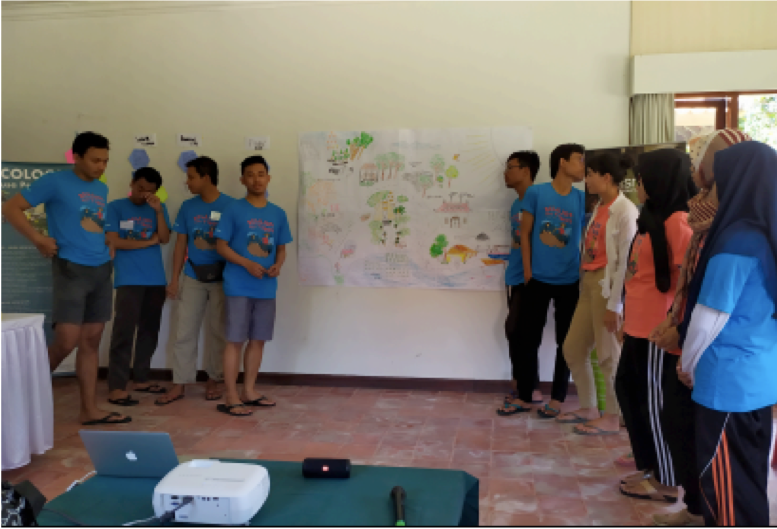

Photos 1 – 2: Participants learn about proposals and action plans (drawing a picture as a map of the program plan that will be implemented in Nusa Penida).
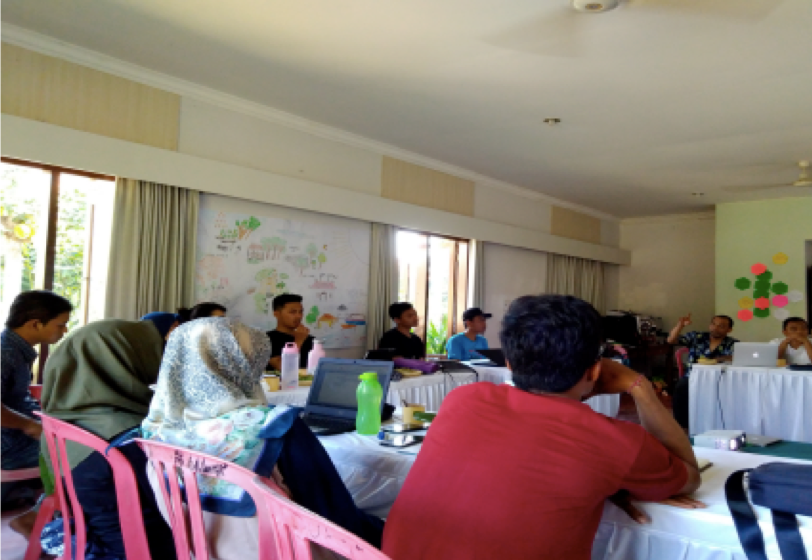

Photos 3 – 4: Participants learn about the Budgeting Program and reflect on thoughts and together with Terasmitra Facilitator.
Program Sustainability
- The participants created a new community which they called Loka Muda. The Loka Muda group drafted activity proposals to be submitted to SGP Indonesia.
- The activity plan they are proposing in Nusa Penida is to form an Ecological Village with environmental, cultural and social community-based objectives. Developing local wisdom (weaving activities and local food) as a tourism activity. Realizing temple asset management through ecotourism.
- There is routine monitoring that can be carried out by the trainer/facilitator regarding the progress of the activity process carried out by the participants.
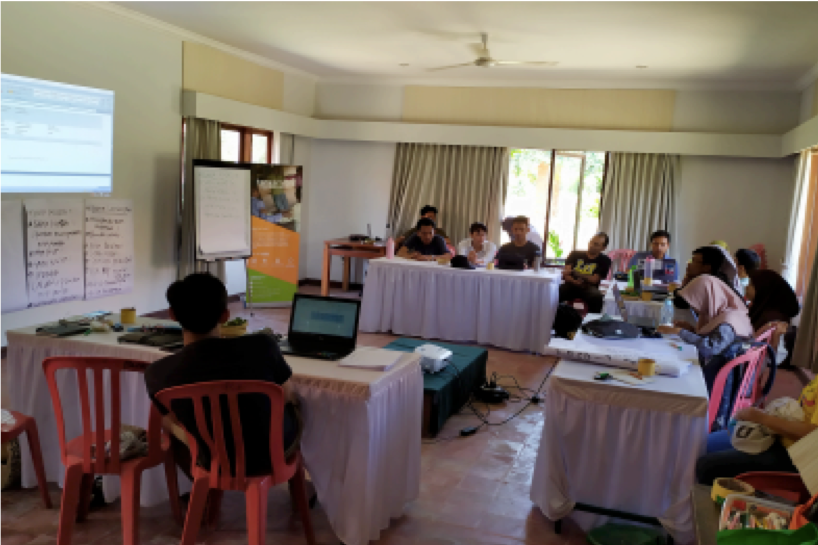
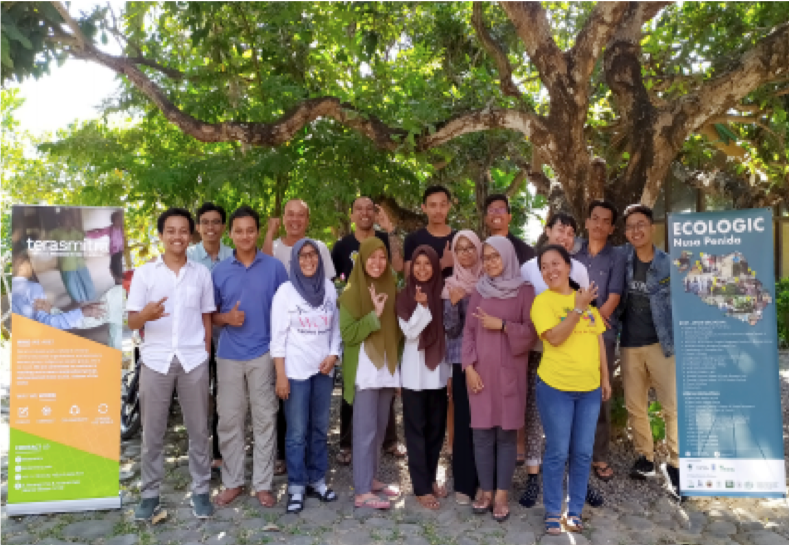
Photo 1: Process of participants presenting final proposals and program closing and evaluation by Terasmitra.
Media Publication
